Newsletter #11: Thanksgiving and Mourning
Image by Anna Larsson
Dear Cornell on Fire,
This is a week of grieving and thanksgiving. While many Native Americans and their allies will observe a National Day of Mourning, others will be sitting down to a harvest feast.
The harvest events of 1621 and 2024 are not disconnected. The Mayflower settlers’ successful harvest at the much-celebrated original Thanksgiving was made possible by their allies the Wampanoag, particularly Tisquantum (Squanto), who “established himself as a key resource to the pilgrims, teaching them how to survive.” Now, as we give thanks during a year in which annual global warming exceeded 1.5°C above preindustrial levels – an astonishing acceleration that scientists cannot explain – we are again in need of teachings on how to survive.
Last Thanksgiving season, we asked Robin Wall Kimmerer: what teachings are needed now for universities like Cornell? Before the overflowing crowd gathered to watch her speak, the acclaimed Indigenous plant scientist and ecologist chuckled: to think I could answer that in three minutes! But she wasted not a moment, pointing to Indigenous principles of the Honorable Harvest that govern reciprocal relationships among living beings and earth.
After a year of reflection upon her words, those principles now frame our movement’s Call to Action. This Thanksgiving, we invite you to envision what an Honorable Harvest might look like in higher education. It’s an open call: will you help us experimentally apply these Indigenous principles to our shared predicament?
Some say that seeking Indigenous insights on climate change risks “romanticizing” such knowledge. Let’s examine this. The Oxford Dictionary says that to romanticize is to “deal with or describe in an idealized or unrealistic fashion; make (something) seem better or more appealing than it really is.” They cite "the tendency to romanticize nonindustrial societies" as an example of how the word is used.*
Interestingly, we mark the catastrophic warming of our world in degrees Celsius “above preindustrial levels.” Atmospheric carbon dioxide pollution is marked in increments above “nonindustrial levels.” The atmosphere, we now know down to our bones, is empirically interconnected with the humans who steward it. When we speak of “preindustrial levels” of global temperature or atmospheric carbon, we are simultaneously speaking of a wide variety of human societies who realized abundance, formed democracies, and embraced women’s autonomy, while also keeping their terrestrial home vibrant.
Are we, then, romanticizing nonindustrial societies by measuring the damage we’ve caused Earth by comparison to their stewardship? Over the course of only 300 years, modern capitalism has put us on course for catastrophic global warming and mass extinctions, including potentially humans. By contrast, Indigenous communities changed and thrived on this continent for an estimated 30,000 years. Is it “romantic” to suggest that communities who continue to carry Indigenous knowledge might have something to teach us?
Under the onslaught of modern capitalism, diverse Indigenous communities have succeeded in resisting ecocide and honoring reciprocity, innovating cultural variations within and among their societies to meet these challenges under extreme conditions. Based on their ability to attend to earth’s feedback, to be accountable, and to protect all their relations, Indigenous communities steward the world’s most biodiverse (indeed, hyperdiverse) lands, maintain flourishing livelihoods while emitting less carbon, and lead the fight to abolish fossil fuels.
Some will point to the extinctions of megafauna apparently correlated with early human presence on Turtle Island, or Native communities today accepting fossil fuel extraction on their lands, to suggest that Indigenous knowledge is imperfect. It is. Indigenous knowledge does not need to be perfect to offer something invaluable: frameworks that guide the continued, interconnected thriving of the web of life. Critically, Indigenous societies’ oral histories encode life-saving lessons: they warn of great perils stemming from greed, selfishness, and arrogance. By contrast, the mistakes we are currently making in full knowledge of their existential consequences could extinguish the possibilities not only for learning, but for life itself.
Finally, let us reflect that, for all the hand-wringing about the risks of “romanticizing” Indigenous knowledge, there is little consternation about the risks of romanticizing institutional scientific knowledge, such as that encoded in carbon capture “solutions,” the separation of humans and nature, or the conservative models that failed to predict accelerated warming. Knowing that culture infuses all science, we must be wary of our capacity to adjudicate others’ contributions to the conversation on their own terms.
And that is where we close: this Thanksgiving, let us consider that the conversation that will matter for the survival of all beings may not be the one defined exclusively by institutionalized scientists, academics, policymakers, and executives. That conversation has failed to reduce carbon emissions and halt ecological destruction year upon year upon year. The conversation that will matter will take place on other terms. We cannot predict what it will look like or where it will lead us, but we do know who to start listening to.
As one Lakota Nation member said of the fourth Thursday in November: “It’s really a day for non-Native people to listen.”
Listening,
Cornell on Fire
*Another test of whether or not we’re romanticizing Indigenous knowledge might point back toward us: (1) does it continue to challenge our way of thinking, and (2) it is actually manifesting itself in action in our lives? On this line of thought, we’re inspired by Vanessa Machado de Oliveira’s approach to decolonizing activism in Hospicing Modernity.
Newsletter originally published November 26, 2024. Full newsletter content viewable here.

